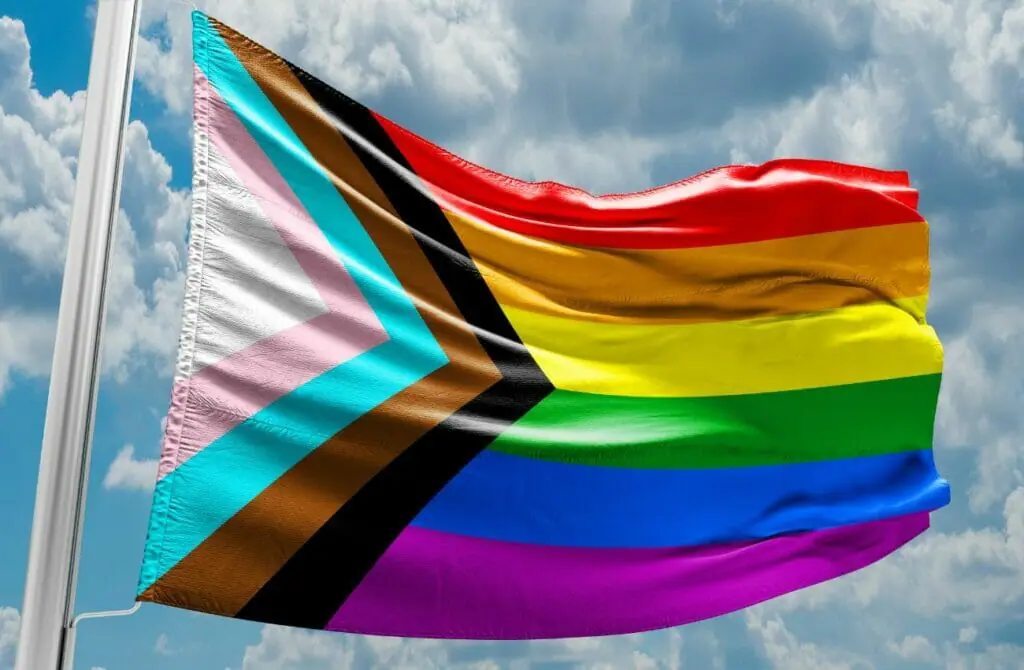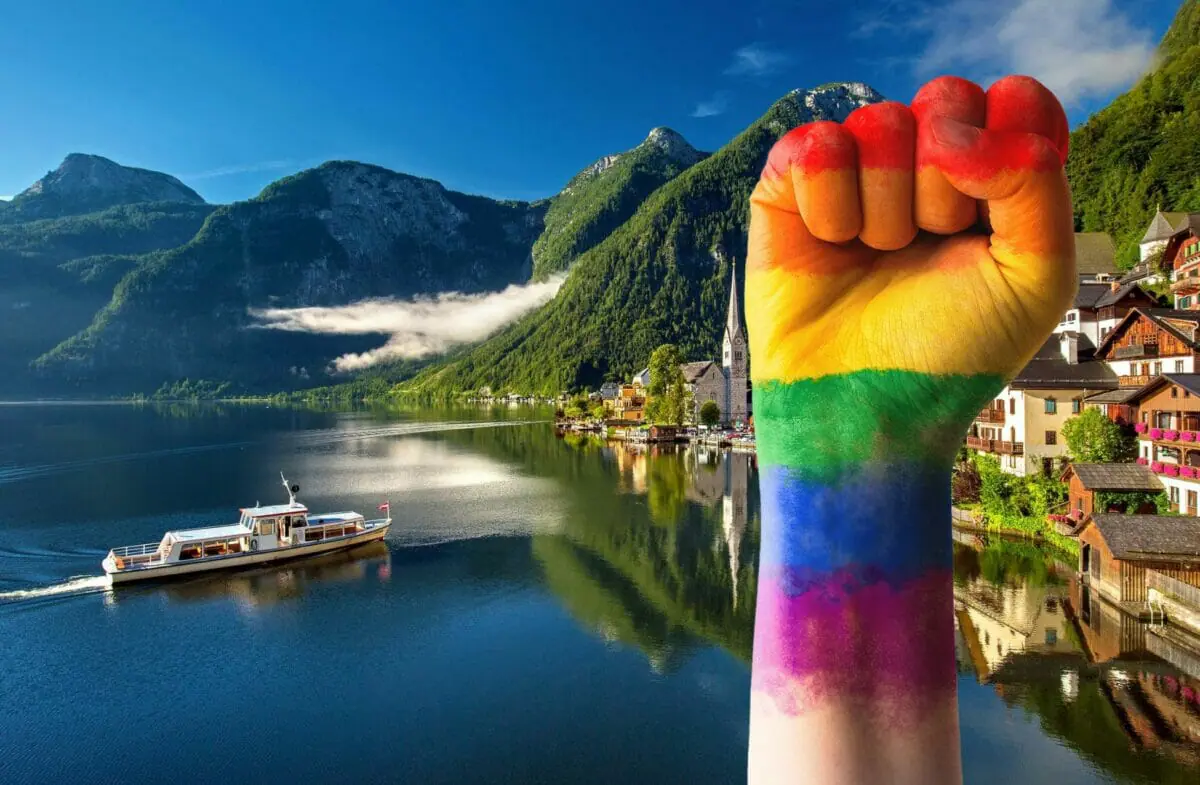Austria has made significant strides in advancing LGBT rights over the last two decades, creating a more inclusive society for both locals and international visitors. Same-sex marriage has been legal since 2019, and other legal protections include the prohibition of discrimination based on sexual orientation and gender identity in areas such as employment and housing.
This progress has allowed the country’s LGBT community to enjoy a more open and accepting environment while tourists can experience a rich and vibrant culture with a sense of safety and security.
Despite the progress, it’s important for travelers to be aware of regional attitudes and always keep personal safety in mind. While Gay Austria is generally progressive, situations can change rapidly, and information may become outdated, so staying informed and seeking current advice before traveling is crucial. Connecting with groups that advocate LGBT rights in Austria, such as HOSI (Homosexuelle Initiative), is a great way to remain aware of the latest developments and recommendations for a seamless travel experience.
In order to protect oneself, it’s essential to be vigilant and practice caution, acknowledging that, like in any country, there may be individuals with less tolerant attitudes. By remaining informed and cautious while celebrating the excitement of Austria’s rich LGBT culture, visitors can contribute to a more inclusive and welcoming environment for all.

History Of LGBT Rights In Austria
Austria has made remarkable progress in the field of LGBT rights over the last two decades. The journey started in 2003 when cohabitating same-sex couples were granted the same rights as cohabitating opposite-sex couples. Registered partnerships were then introduced and made legal on January 1, 2010, extending some of the rights of marriage to same-sex couples.
The country has enacted legal protections for sexual and gender minorities, making it one of 17 countries in the OECD with the most inclusive laws for the LGBT community. In Austria, homosexuality is legal, same-sex marriage is allowed, and changing one’s gender is legal without the requirement of surgery. Discrimination based on sexual orientation and gender identity is illegal in some contexts, such as employment and housing.
While LGBT rights have significantly improved for local people, similar rights have been extended to tourists as well. In general, Austria is considered an LGBT-friendly destination. However, it is essential for tourists to remain vigilant when traveling. Situations may change, and information may become outdated, so it is always wise to seek current advice before making travel plans.
If necessary, visitors can take precautionary measures to ensure their safety, such as being familiar with local laws and customs, joining online communities for up-to-date information, and connecting with local LGBT advocacy groups.
A few prominent organizations in Austria include Rechtskomitee LAMBDA, which focuses on legal protection and advancements for the LGBT community, and HOSI Wien, one of Austria’s most prominent LGBT organizations that aim to improve social acceptance and push for legal equality.
Remember, situations concerning LGBT rights can change fast, and there are always bad actors in every country. Remaining cautious and knowledgeable about the specifics of the region you are visiting is prudent. Keep in mind that Austria has seen vast progress in terms of LGBT rights, which is undoubtedly worth celebrating.
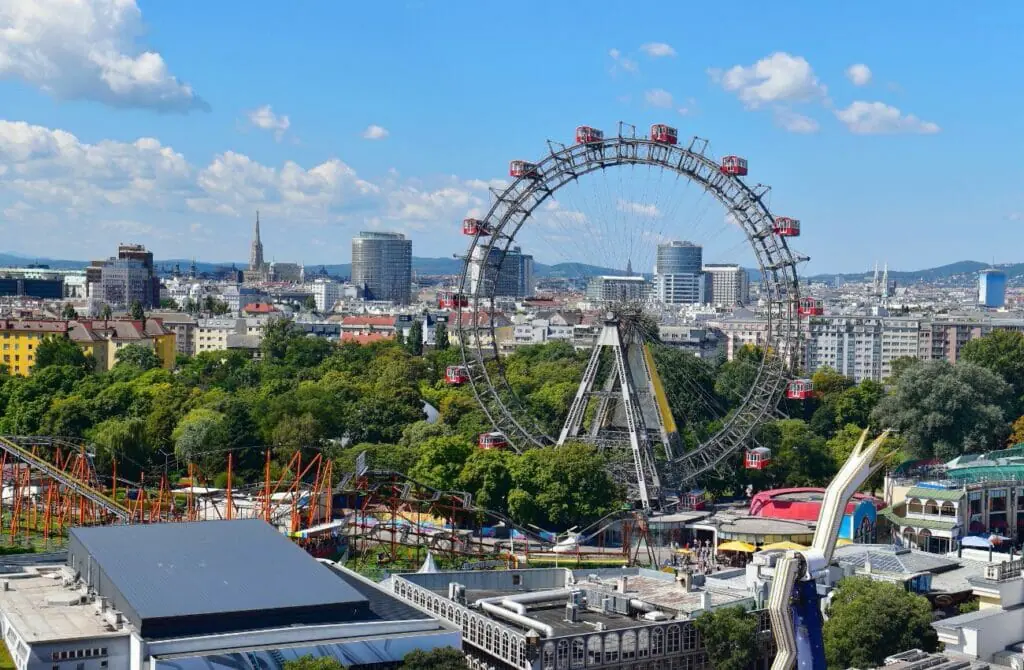
The LGBT Legal Situation In Austria
Austria has made significant strides in recent years when it comes to LGBT rights, with many positive changes being implemented. Same-sex marriage has been legal since January 1, 2019, following a landmark ruling by the Austrian Constitutional Court in December 2017. This has greatly improved the legal recognition of LGBT couples in the country.
In terms of gender identity, Austria has recognized the right to change one’s gender on official documents without the need for surgery. Furthermore, on June 15, 2018, the Austrian Constitutional Court ruled that intersex individuals must have access to a non-binary gender option in the civil registry and other identity documents, which was another progressive step in protecting the rights of those with diverse gender identities.
Despite these advances, it’s important for both locals and tourists to be aware of the potential challenges faced by the LGBT community. Situations can change quickly, and there may be instances where individuals may not be as accepting or respectful as one would hope. It’s always best to err on the side of caution and remain vigilant during your interactions and travels, regardless of the country.
To protect yourself and stay informed about the current legal situation and any potential risks, it’s essential to seek up-to-date advice before traveling to Austria. Being aware of the local context and any changes in legislation or cultural attitudes will help ensure a safe and enjoyable experience.
There are several LGBT advocacy groups in Austria that can be helpful resources for local individuals as well as travelers. These organizations work to promote LGBT rights and inclusivity within the country and can provide assistance, information, and support for those who need it.
So, while we are excited about the progress Austria has made in recent years in terms of LGBT rights, it’s crucial to stay informed, remain cautious, and be respectful of local attitudes, as the situation can always change, and bad actors can be found anywhere.
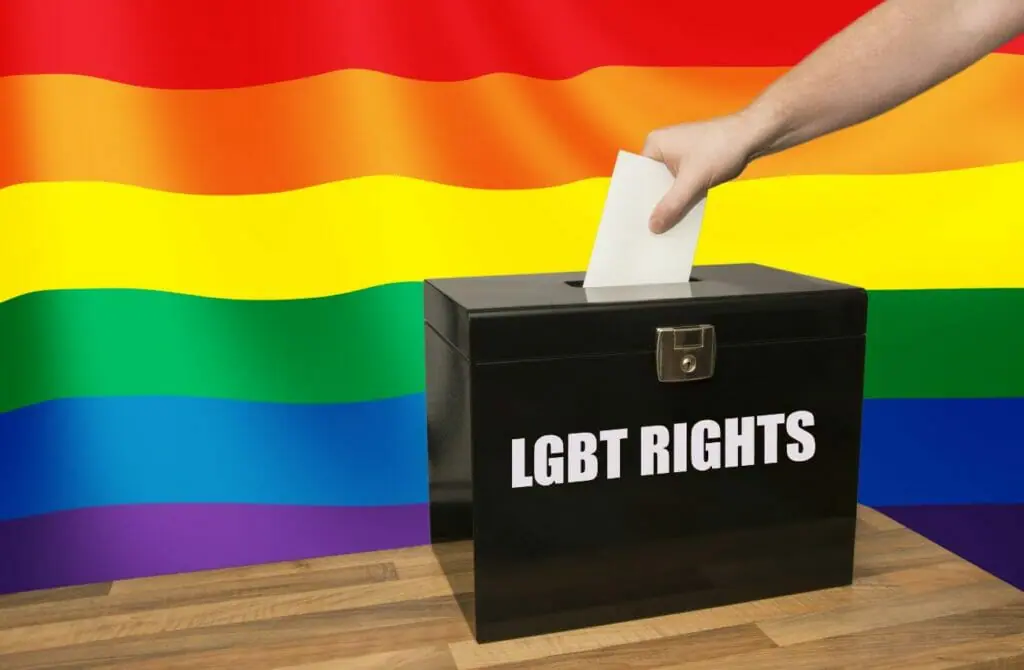

The LGBT Social Situation In Austria
Austria has made great strides in recent years, advancing LGBTQ+ rights and fostering a more inclusive environment for both locals and tourists. Although the country’s historically conservative roots have influenced societal opinions, progress has undoubtedly been made.
Same-sex marriage was legalized in 2019, and both male and female same-sex sexual activity has been legal since 1971. Laws regarding same-sex adoption have likewise evolved, with stepchild adoption being legalized in 2013 and full joint adoption in 2015. The Austrian government has made efforts to adopt more LGBTI-inclusive laws, aligning with international human rights standards.
In general, LGBTQ+ travelers should find Austria, especially in urban areas, quite welcoming and tolerant. The country hosts a variety of LGBTQ+ events and festivals, including the popular Life Ball in Vienna. With steadily growing acceptance of LGBTQ+ individuals, locals are becoming more supportive of this community, providing a hospitable atmosphere for tourists too.
Regardless of the improvements and acceptance, it’s essential to remember that the social situation in any country can change swiftly, and some individuals may harbor prejudice against LGBTQ+ people. Therefore, it is advised to stay informed about recent updates and developments regarding LGBTQ+ rights in Austria before traveling and remain vigilant throughout your stay.
While in Austria, if you ever require any support, there are several LGBT advocacy groups, such as Rechtskomitee Lambda and HOSI, that actively work for the betterment of LGBTQ+ individuals’ lives in the country.
In conclusion, Austria is an exciting destination for any LGBTQ+ traveler, offering a progressive environment and a vibrant, supportive community. As in any travel situation, it’s important to remain informed and cautious while embracing the rich experiences that Austria has to offer.
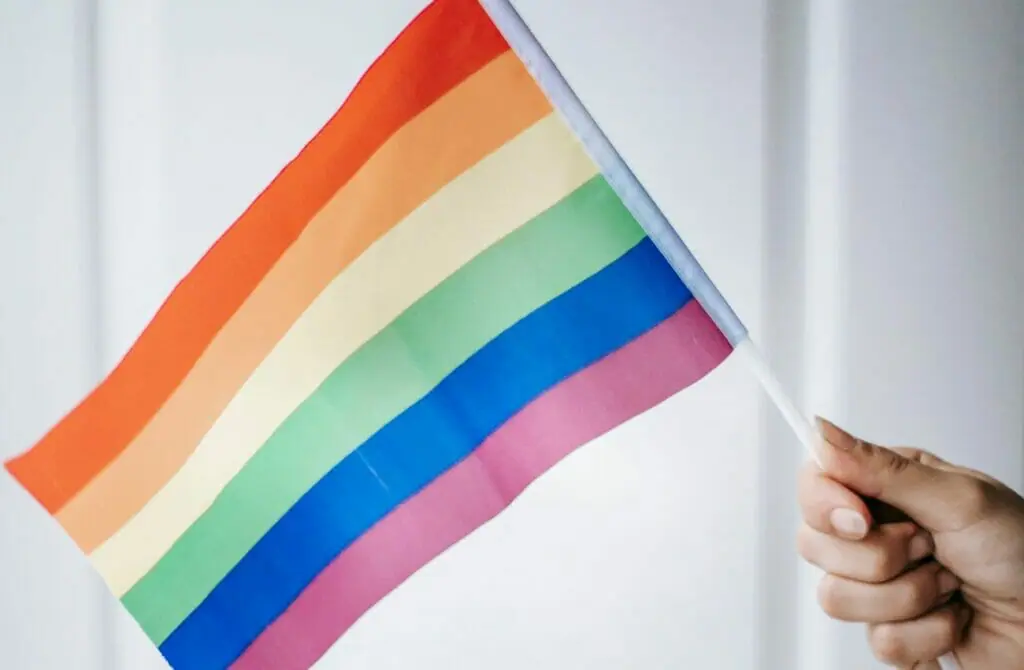
Trans Rights In Austria
Austria has made considerable progress in promoting LGBT rights, and this includes the rights of transgender individuals. Changing gender is legal in Austria, and surgery is not required, allowing trans people to have their gender recognized without undergoing invasive procedures. However, like in many other countries, there is still room for improvement.
In terms of safety, transgender locals and tourists alike should be vigilant and exercise caution while exploring the country. While Austria is relatively progressive and accepting, bad actors can be found in any nation, and the situation may change rapidly. It’s always good practice to stay updated on the current situation and seek advice before traveling to ensure personal safety.
One step that could be taken to protect trans individuals is to base the change of gender markers for transgender people on self-determination, as suggested by the OECD. Including gender identity and sex characteristics in the Federal Equal Treatment Commission’s explicit protections can also help further improve legal inclusivity in Austria.
Austrian LGBT advocacy groups are actively working to promote rights, raise awareness, and provide support for local and visiting LGBT individuals, including the transgender community. These organizations can provide valuable information about local laws, societal attitudes, and any current issues the community may be facing.
In conclusion, Austria has come a long way in terms of LGBT and trans rights, but there is always room for improvement. Staying informed and involved and working alongside advocacy groups can help ensure a safer and more inclusive environment for all.


The Future For The Queer Community In Austria
Austria has made significant strides in recognizing and protecting the rights of its LGBTQ+ citizens in recent years. With the legalization of same-sex marriage in 2019, the country has demonstrated an increasingly liberal attitude towards issues related to sexual orientation and gender identity.
For both locals and tourists alike, the future of LGBTQ+ rights in Austria looks bright. Society continues to evolve, and inclusivity and acceptance are becoming the norm. That being said, it is essential for individuals to remain vigilant and aware of their surroundings, as unfortunate incidents can occur anywhere.
To ensure your safety and well-being, always seek up-to-date information before traveling and reaching out to local LGBTQ+ advocacy groups can provide valuable insights into current situations and best practices. Organizations such as HOSI Wien and Rechtskomitee LAMBDA are excellent resources for information and support.
The ongoing progress in LGBTQ+ rights and inclusivity in Austria should be celebrated, but it’s important to never become complacent. As in any country, the situation can change rapidly, and information can become outdated. Therefore, staying informed and cautious is crucial to enjoying your time in this beautiful and increasingly accepting nation.

Protect Yourself While Travelling In Gay Austria
When visiting Austria, both local LGBTQ+ community members and tourists alike should always exercise caution and be aware of their surroundings. While Austria has made significant advancements in LGBTQ+ rights in recent years, it’s essential to remember that situations can change quickly, and information may become outdated.
To ensure your safety and protection, familiarize yourself with local LGBTQ+ advocacy groups, such as HOSI Wien or Rechtskomitee LAMBDA. These organizations can provide valuable resources, up-to-date information on the local LGBTQ+ climate, and support if needed. Keep in mind that there may be bad actors in every country, so remaining vigilant is essential to safeguard your well-being.
As an LGBTQ+ traveler or local resident, taking precautionary measures such as researching neighborhoods and establishments that are LGBTQ+-friendly can help avoid conflict or discrimination. When attending events or visiting popular LGBTQ+ areas, traveling with friends or in groups can provide a sense of safety and comfort.
Remember, situations may change over time, and ensuring your well-being is of utmost importance. Always reach out to trusted sources, seek current advice and verify information before traveling or attending LGBTQ+ events in Austria. Stay connected with the vibrant LGBTQ+ community, and have a fabulous time exploring the beautiful country of Austria!
